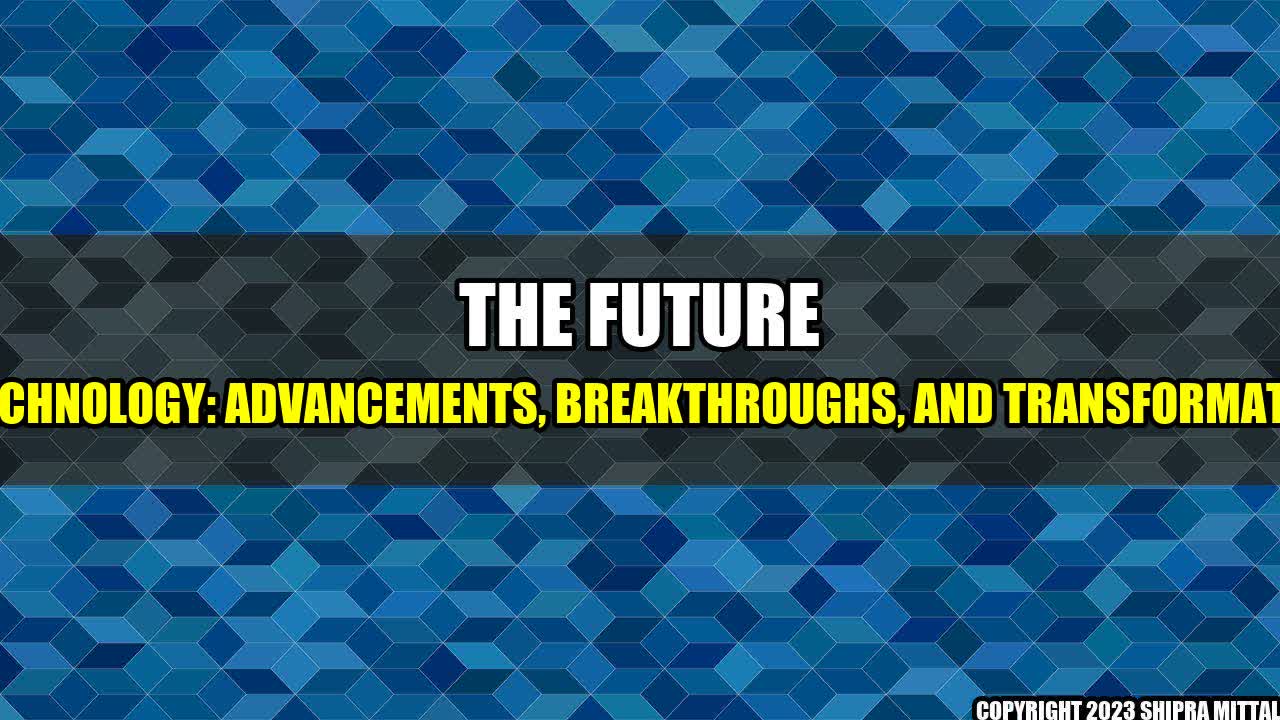
Once upon a time, in a world without smartphones and social media, people communicated through letters sent by post and books read at libraries. But over the years, technological advancements have transformed the way we connect, learn, and live. From the emergence of e-commerce to the development of artificial intelligence, technology has taken us to places we never thought possible.
In this article, we explore some of the most groundbreaking technological achievements of our time, and how they're shaping the future of humanity.
Online shopping has been around for over two decades now, but it wasn't until recently that it became a global phenomenon. Companies like Amazon, Alibaba, and Walmart have revolutionized the retail industry by providing consumers with easy access to products from all around the world, at the click of a button.
According to Statista, global e-commerce sales in 2020 reached $4.2 trillion, a 27.6% increase from the previous year. This growth can be attributed to the Covid-19 pandemic that forced people to turn to online shopping as a safer alternative to physical stores.
Not only has e-commerce made shopping more convenient, it has also created new job opportunities and boosted the economy. However, the rise of online shopping has also had its drawbacks, such as increased competition, cyber threats, and environmental concerns.
Artificial Intelligence (AI) and Machine Learning (ML) have been in development for decades, but it's only in recent years that they've gained widespread recognition. AI refers to computer systems that can perform tasks that normally require human intelligence, such as visual perception, speech recognition, and decision-making. ML is a subset of AI that involves training a computer algorithm to learn from data, without being explicitly programmed.
Companies like Google, Microsoft, and IBM have been at the forefront of AI and ML research, developing applications that range from self-driving cars to personalized healthcare. According to a report by Tractica, AI software revenue is expected to reach $118.6 billion by 2025, up from $9.5 billion in 2018.
While AI and ML have the potential to revolutionize various industries, including healthcare, finance, and transportation, there are also concerns about their impact on jobs, privacy, and ethics.
The world is facing a climate crisis, with rising temperatures, melting ice caps, and more frequent natural disasters. The solution to this crisis lies in renewable energy and sustainability.
Companies like Tesla, SunPower, and Vestas have pioneered renewable energy technologies, including solar, wind, and hydrogen energy. Thanks to their efforts, renewable energy is now cheaper and more efficient than ever before.
In addition, sustainable practices such as reducing waste, conserving resources, and promoting biodiversity, have become a top priority for many businesses worldwide. According to a report by Nielsen, 73% of surveyed consumers say they would change their consumption habits to reduce their carbon footprint.
However, the transition to renewable energy and sustainability is not without its challenges, such as high initial costs, political resistance, and lack of public awareness.
In conclusion, technology has transformed the world in ways we never thought possible, from the rise of e-commerce to the development of AI and the transition to renewable energy. However, these advancements come with their own set of challenges, such as job displacement, privacy concerns, and environmental issues.
To overcome these challenges, we need to work together as a global community to ensure that technology benefits everyone, not just a select few. As we move forward into the future, we must embrace technological innovations with a critical eye, seeking to advance our world while also protecting its most vulnerable citizens.
Keywords: technology, future, innovation, e-commerce, artificial intelligence, machine learning, renewable energy, sustainability.
Category: Technology Trends
Author: Akash Mittal
Akash Mittal Tech Article
Share on Twitter Share on LinkedIn